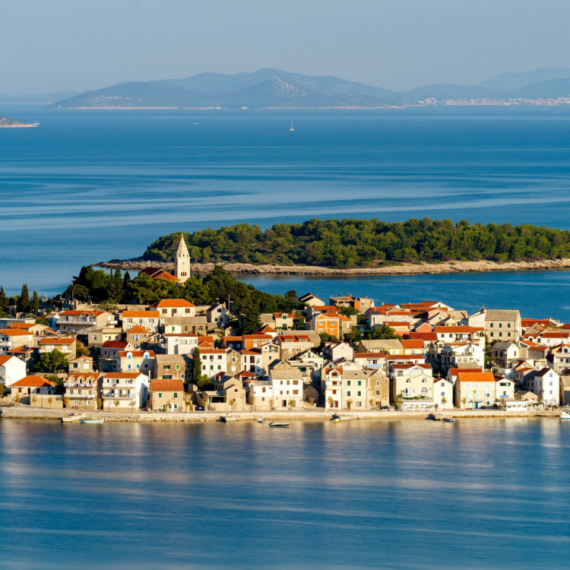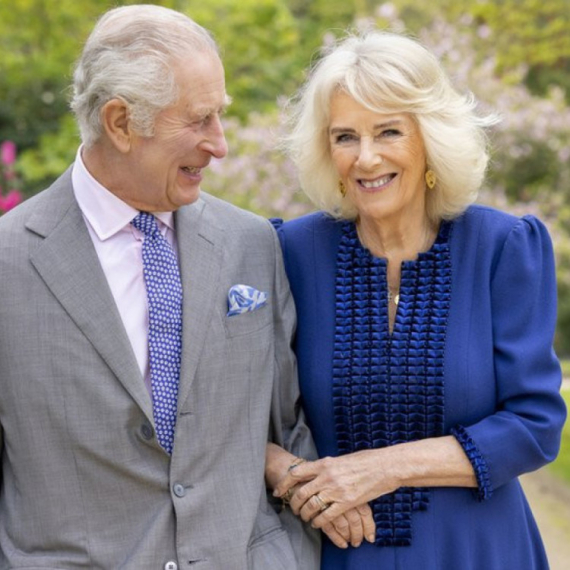Feith expects “new recognitions”
New recognitions of Kosovo will follow the advisory opinion of the International Court of Justice, says International Civil Office (ICO) chief Pieter Feith
Wednesday, 09.06.2010.
09:34

New recognitions of Kosovo will follow the advisory opinion of the International Court of Justice, says International Civil Office (ICO) chief Pieter Feith Feith holds another office in Pristina – that of the EU special representative. Feith expects “new recognitions” But as he spoke in Brussels on Tuesday, the Dutch diplomat “underlined that he was speaking in the name of the countries that recognized Kosovo's independence”, Beta news agency reported. The ICJ is expected to later this year rule in the case brought before it by Serbia via the UN General Assembly. The judges will determine the legality of the Kosovo Albanian unilateral proclamation under international law. Feith said that it was important to wait for the court's decision, but added it would be a "mixed opinion" that will "somewhat satisfy Belgrade, and to an extent support Kosovo, and which will open the door to a new recognition of its independence". As a special envoy of the EU in Kosovo, Feith, together with EULEX Chief Yves de Kermabon, submitted a report to the EU Political-Security Committee. He stressed that the stands of the court in the Hague “will not change anything regarding the position of the countries that recognized Kosovo”. “The court's advisory opinion is not obliging, but it is important, because it will give a basis regarding an issue where international law is not clearly articulated in regards to countries' or peoples' independence." He added that Kosovo made “notable progress, and went on to say that the Serb community south of the Ibar River “decided to take on responsibility in the municipality where it has a majority, and become involved in the Kosovo institutions”. Feith noted that it could be a "role model for the north of Kosovo" and stressed that the EU “advocates improvement of the economic and social situation of Serbs in the north of Kosovo”. The EU envoy expressed opposition to a partition of Kosovo, stating that there is a "very low mood" regarding the division in Pristina, i.e. among the Kosovo Albanians. Asked if Kosovo can survive economically without the help of the international community, Feith claimed that "Kosovo is a sustainable country on the way to becoming a multi-ethnic democracy".
Feith expects “new recognitions”
But as he spoke in Brussels on Tuesday, the Dutch diplomat “underlined that he was speaking in the name of the countries that recognized Kosovo's independence”, Beta news agency reported.The ICJ is expected to later this year rule in the case brought before it by Serbia via the UN General Assembly. The judges will determine the legality of the Kosovo Albanian unilateral proclamation under international law.
Feith said that it was important to wait for the court's decision, but added it would be a "mixed opinion" that will "somewhat satisfy Belgrade, and to an extent support Kosovo, and which will open the door to a new recognition of its independence".
As a special envoy of the EU in Kosovo, Feith, together with EULEX Chief Yves de Kermabon, submitted a report to the EU Political-Security Committee.
He stressed that the stands of the court in the Hague “will not change anything regarding the position of the countries that recognized Kosovo”.
“The court's advisory opinion is not obliging, but it is important, because it will give a basis regarding an issue where international law is not clearly articulated in regards to countries' or peoples' independence."
He added that Kosovo made “notable progress, and went on to say that the Serb community south of the Ibar River “decided to take on responsibility in the municipality where it has a majority, and become involved in the Kosovo institutions”.
Feith noted that it could be a "role model for the north of Kosovo" and stressed that the EU “advocates improvement of the economic and social situation of Serbs in the north of Kosovo”.
The EU envoy expressed opposition to a partition of Kosovo, stating that there is a "very low mood" regarding the division in Priština, i.e. among the Kosovo Albanians.
Asked if Kosovo can survive economically without the help of the international community, Feith claimed that "Kosovo is a sustainable country on the way to becoming a multi-ethnic democracy".




























































Komentari 48
Pogledaj komentare